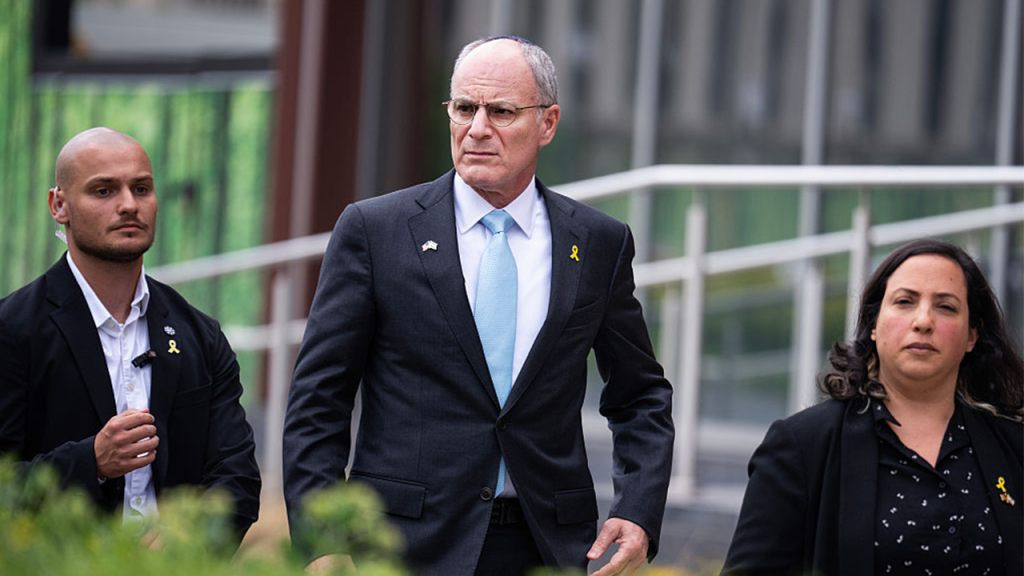A Delicate Peace: Israel-Hamas Agreement Balances Hope with Skepticism
In a significant diplomatic breakthrough, Israel and Hamas have reached a peace agreement, brokered through intensive mediation efforts by the United States, Qatar, and Egypt. According to Israel’s ambassador to the U.S., Yechiel Leiter, the deal hinges on two critical requirements: Hamas must return all 48 living and deceased hostages and completely disarm. Speaking with Fox News Digital, Ambassador Leiter emphasized that these conditions are non-negotiable for ending the conflict in Gaza. “There will be no end to the war in Gaza” without full compliance, he warned. The Israeli government is expected to approve the agreement, which was initially presented by President Trump and subsequently accepted by Prime Minister Netanyahu. However, the path to peace remains fraught with potential obstacles and uncertainties.
The agreement establishes a tight timeline, with Hamas required to return all hostages within a 72-hour window beginning Friday evening local time. This requirement has raised practical concerns, particularly regarding the deceased hostages. “They have an obligation to return everyone in 72 hours,” Leiter stated, acknowledging that there are “glitches” to address. One significant challenge is that Hamas reportedly failed to keep track of where it left the bodies of the deceased hostages. To address this issue, an international task force involving the U.S., Qatar, and Egypt has been formed to help recover the remains. Despite these challenges, Israel’s position remains firm: “Until every body is returned, Israel will not withdraw its forces from the Gaza Strip,” the ambassador declared, underscoring the emotional and symbolic importance of bringing all hostages home.
The peace plan unfolds in two distinct phases, with the first focusing on immediate humanitarian relief and prisoner exchanges. This initial phase requires Hamas to return all hostages, Israel to partially withdraw troops to designated lines agreed upon by both parties, and the release of nearly 2,000 Palestinian prisoners, including 250 serving life sentences for terrorist offenses such as murder. Ambassador Leiter confirmed that current efforts are concentrated on this first phase: “We’ve put all the focus now on the first phase.” The second phase envisions a more comprehensive resolution, calling for further Israeli military withdrawal coordinated with Hamas’s complete disarmament and the demilitarization of Gaza. Additionally, an international “peace body” headed by President Trump would oversee Gaza’s reconstruction efforts, representing an ambitious vision for the territory’s future development and stability.
Despite the agreement, significant questions remain about Hamas’s willingness to fully disarm—a cornerstone of the peace plan and a long-standing Israeli objective. Reports suggest Hamas initially objected to disarmament requirements, despite the offer of amnesty and potential relocation to a third country for its members. Ambassador Leiter was unable to confirm whether Hamas has formally accepted these terms, noting only that “we hope it proceeds according to the president’s plan.” He characterized the agreement as “basically a surrender on Hamas’s part,” while candidly acknowledging that the militant group “doesn’t like it one bit” and will likely attempt to “show that they’re still relevant.” This dynamic creates considerable uncertainty around the implementation of the second phase, as Hamas has publicly suggested it will resist disarmament efforts.
The agreement represents a delicate balancing act between immediate humanitarian concerns and long-term security objectives. For Israel, the return of hostages addresses an urgent national priority while the disarmament provisions seek to prevent future threats. “We can’t go back into a situation where we have Jihadi militants sitting at our border, or else we haven’t accomplished anything,” Leiter emphasized. The deal’s performance-based nature means that Israeli withdrawal is contingent on Hamas meeting its obligations: “They disarm, they are disarmed if necessary, and then Israel withdraws.” This approach reflects Israel’s determination to avoid returning to a status quo where militant groups can threaten Israeli civilians from Gaza, while also acknowledging the humanitarian imperative of resolving the current conflict.
The path forward remains uncertain, with success depending on both parties’ willingness and ability to fulfill their obligations. Ambassador Leiter’s frank assessment—”We assume, having long experience with Hamas and Islamic Jihad and these terrorist organizations, that there are going to be glitches along the way”—reflects the caution that tempers optimism for lasting peace. The involvement of international mediators and the creation of a multinational peace body suggest recognition that external support and oversight will be essential for implementation. As the 72-hour countdown begins, the world watches anxiously to see if this agreement can deliver on its promise of returning hostages, ending hostilities, and creating conditions for longer-term stability—or whether it will join the long list of Middle East peace initiatives that faltered during implementation. The stakes could not be higher for all involved, especially the hostages and civilian populations who have endured months of conflict and uncertainty.














